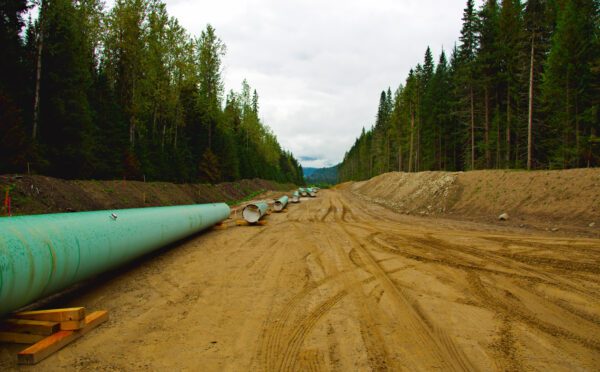Author
Calgary Managing Partner, Calgary
The long-awaited federal budget released on April 19, 2021 (the Budget) took aim at supporting the transition of Canada’s energy industry to a low carbon future by providing significant incentives. Many of those incentives seek to boost Canada’s nascent low carbon fuel industry and accelerate energy transition across the country.
Although it lacks detail in several noteworthy respects, the Budget incorporates multiple “green” initiatives aimed at curbing greenhouse gas emissions and global climate change, including a $17.6 billion allocation toward a “green recovery” from the economic hardships imposed by the COVID-19 pandemic. Such initiatives and spending include:
- Green project funding:
- $5 billion over seven years to the recently-created Net Zero Accelerator, a fund aimed at expediting decarbonization projects with large emitters and scaling-up clean technology across the country. This commitment is in addition to the $3 billion over five years committed to the Net Zero Accelerator fund on December 11, 2020. The fund is part of the Strategic Innovation Fund, aimed at spurring innovation in Canada by providing funding for qualifying large projects (i.e., those with over $10 million in requested contribution with total costs of at least $20 million). Only limited information regarding eligibility under the Net Zero Accelerator fund is currently available. The government accepts proposals on a continuous basis, but no projects under the Net Zero Accelerator fund have been announced to date.
- Up to $1 billion over five years to help draw in private sector investment for large-scale clean technology projects. The funding is intended to address barriers currently faced by large transformative clean technology projects in securing adequate investment (including scale and time horizon) from traditional project financiers. Additional information regarding eligibility was not provided.
- Zero-Emission Technology Development: A 50% reduction to the general corporate and small business income tax rates for businesses that manufacture zero-emission technologies, effective January 1, 2022. Examples include manufacturing of geothermal energy systems, production of biofuels from waste materials, production of “green” hydrogen (i.e., hydrogen produced using electricity from renewable energy sources with water but not “blue” hydrogen produced by steam methane reforming), and manufacturing of certain energy storage equipment. The government estimates that this measure will reduce federal revenues by $45 million over five years.
- Carbon Capture, Utilization and Storage (CCUS):
- A proposal to introduce an investment tax credit for capital invested in CCUS projects, to take effect in 2022. The details of this tax credit have not yet been announced, but the Budget states the initiative will support both CCUS and “blue” hydrogen production, but not enhanced oil recovery. The Budget did not provide further details on the eligibility criteria, whether the credit will be refundable or whether there will be a cap. The government will run a 90-day consultation period to seek input from stakeholders regarding the design of the tax credit. Following consultation, the government will announce further details (including the rate) and introduce related legislation for this credit.
- The Budget also includes $319 million over seven years, with $1.5 million in remaining amortization, for Natural Resources Canada to support research, development, and demonstrations that would improve the commercial viability of CCUS technologies.
- Clean Energy Generation and Efficiency: An estimated $142 million over five years in tax incentives (via accelerated deduction) to encourage businesses to invest in “clean” energy generation and energy efficiency equipment. The incentive works by allowing businesses to immediately write off the full cost of investments in certain energy technologies, including equipment used in pumped hydroelectric energy storage, renewable fuel production, hydrogen production by electrolysis of water (again, this excludes “blue” hydrogen), and hydrogen refueling. Certain existing restrictions on this incentive related to investments in water-current, wave and tidal energy, active solar heating, and geothermal energy technologies will be removed. Some previously-eligible equipment will also be removed.
- Critical Minerals: $9.6 million over three years to create a Critical Battery Minerals Centre of Excellence at Natural Resources Canada to coordinate federal policy and programs on critical minerals, such as lithium, helium, cobalt, potash and others. This initiative builds on the Canada-U.S. Joint Action Plan on Critical Minerals Collaboration, finalized in January 2020, and includes reference to “working with” provincial, territorial, and “other partners” on critical mineral development. The Budget also includes $36.8 million over three years, with $10.9 million in remaining amortization, to Natural Resources Canada, for federal research and development to advance critical battery mineral processing and refining expertise.
- Low Carbon Fuels: $67.2 million over seven years for the implementation and administration of the Clean Fuel Standard, which is designed to complement the Clean Fuel Regulations published in December 2020. The funding is aimed at developing new economic opportunities for Canada’s biofuel producers, including farmers and foresters, who are part of the supply chain for low-carbon fuels. The Budget also incorporates $1.5 billion over five years allocated to Natural Resources Canada to establish a Clean Fuels Fund, which was originally announced in December 2020, to support the production and distribution of low-carbon and zero-emission fuels, including hydrogen and biomass.
- Federal Renewable Power Procurement: $14.9 million over four years, starting in 2022-2023, with $77.9 million in future years, for a Federal Clean Electricity Fund, enabling Canada (through Public Services and Procurement Canada) to purchase renewable energy certificates for all federal government buildings. The goal is to support Canada’s commitment to power all federal buildings with 100% renewable electricity by 2022. In January 2021, Canada launched a clean electricity procurement process tied to this initiative, with final contracts anticipated to be awarded by the end of May 2021.
- Green Bond: A new “green bond” of approximately $5 billion in 2021-22 to facilitate investment in “green” infrastructure, clean technology innovations, nature conservation, and other efforts to address climate change and protect the environment. The government is expected to publish a green bond framework with additional details in the coming months. The Budget states this would be the first of many green bond issuances.
Overall, the suite of environmental measures in the Budget are expected to provide increased economic opportunities to businesses involved in the manufacture, development and implementation of new and emerging technologies in energy and associated mineral development. Companies with existing or planned projects in this area should engage with the federal government to better understand how the Budget will affect their specific projects, and to provide input into the details of the Budget measures that have not yet been finalized and are open to public consultation.
For further information on emerging energy technologies that could benefit from these Budget measures, see our published resources here and on-demand webinar here.

